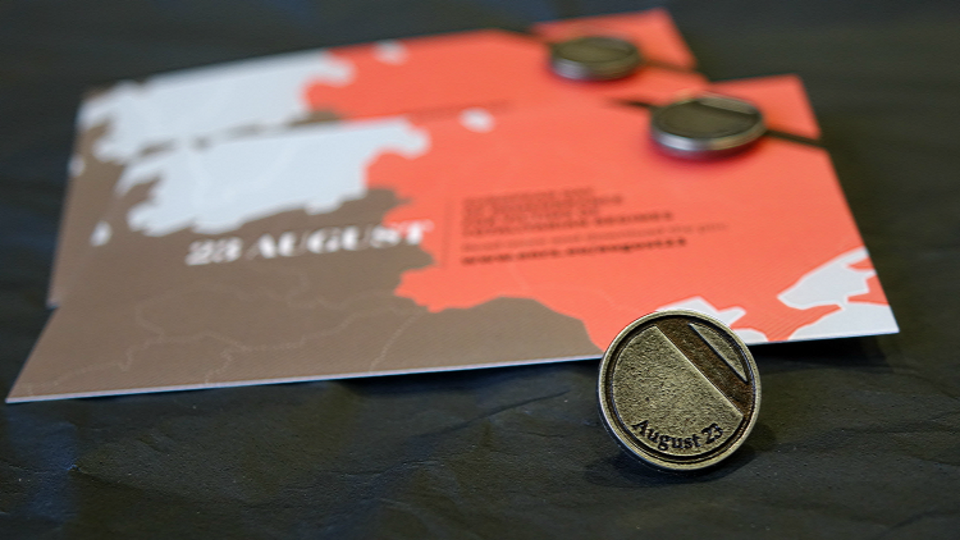On that day 84 years ago, the infamous Molotov-Ribbentrop Pact was signed between Nazi Germany and the Soviet Union that paved the way for the Second World War and its aftermath: concentration camps, gulags, the Holocaust, and labour camps, followed by the long years of the Cold War and, for many, further enslavement and occupation.
To bring the significance of these events to a wider audience, the European Network Remembrance and Solidarity (ENRS) has since 2014 been running a public education campaign 'Remember. 23 August'.
With Russia's ongoing aggression against Ukraine, the commemoration takes on a highly topical dimension, bringing new victims of modern Russia’s totalitarianism: in Bucha, Irpin, Borodianka or Mariupol. Today, in the age of disinformation, it is particularly important to tell the 20th-century European history as clearly and transparently as possible.
Launched in 2019, the series of campaign spots 'Remember. August 23' will include short films telling the stories of victims of totalitarianism whose courage and resistance in the face of evil left a lasting mark on the history of the 20th century. The videos are dedicated to individuals from Poland, Ukraine, Romania, Estonia, Czechoslovakia, Lithuania, Latvia and Hungary, including:
- Ieva Lase (1916–2002), a Latvian translator and French teacher who was twice imprisoned for her dissident activities,
- Władysław Bartoszewski (1922–2015), Polish social activist, historian and politician, Auschwitz concentration camp prisoner, Home Army soldier, imprisoned several times by the communist authorities,
- Boris Romanchenko (1926–2022), Ukrainian activist, Holocaust survivor, victim of Russian aggression against Ukraine,
- Doina Cornea (1929–2018), a Romanian dissident who had the courage to publicly oppose the bloody rule of communist dictator Nicolae Ceausescu in the 1980s,
- Jaan Kross (1920–2007), Estonian poet and writer, arrested during the German occupation of Estonia and later imprisoned by the NKVD and sent to the gulags,
- Kazimierz Moczarski (1907–1975), Polish journalist, writer, Home Army soldier and author of ‘Conversations with an Executioner’,
- Milada Horáková (1901–1950), Czech politician, sentenced to death during the Stalinist period in Czechoslovakia,
- Juliana Zarchi, a Lithuanian of German-Jewish origin who experienced both totalitarianisms,
- Mala Zimetbaum, a Jew, and Edek Galiński, a Pole, prisoners in the Auschwitz concentration camp,
- Péter Mansfeld, the youngest victim of the 1956 Hungarian repression.
An international media and outdoor campaign will be visible in European capitals encouraging politicians, journalists, artists, social activists and young people across Europe to discuss the Second World War and its aftermath. Badges will also be distributed to raise the day's public profile, at museums and memorial sites across Europe, including the Museum of the Occupation of Latvia (Latviešu strēlnieku laukums 1, Rīga).
► Па-беларуску ► In English ● Latviski ► Po polsku ► На русском ► Українською
More information on the campaign is available at: www.enrs.eu/August23. Our colleagues at LSM's Russian-language service are also publishing information about August 23 in the Polish, Russian, Ukrainian and Belarusian languages.



























